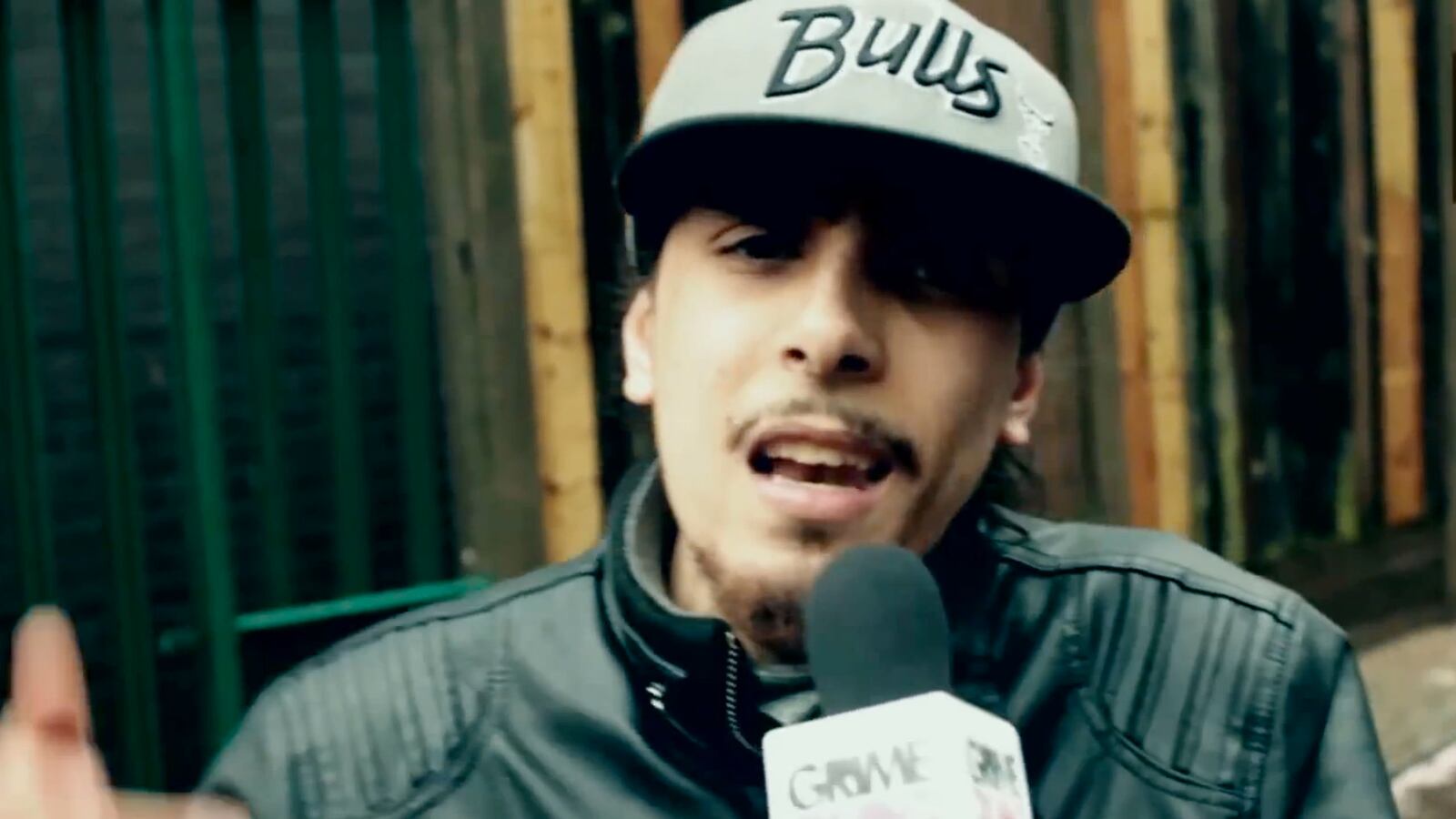Almost 2,500 years ago, a man named Herostratus decided he wanted to be famous. He had no talents and no achievements. What he did have were the tools of an arsonist. He set fire to the famous Temple of Artemis at Ephesus, in what is now Turkey and then allowed himself to be caught. The local authorities executed him and ordered that nobody should ever mention his name. It didn’t work, and to this day, we still struggle with the problem of how to deal with the problem of the fame-seeking criminal.
On August 19 of this year, the American journalist James Foley was beheaded on camera. And then again, on September 3, another American journalist, Steven Sotloff, was beheaded. One suspect in the murder is a 23-year-old Londoner named Abdel Majed Abdel Bary. Before he turned to jihad, as we know, Bary had tried to become a rapper. Some of his videos and mixes remain online on YouTube and SoundCloud. He went by the aliases of Lyricist Jinn, L Jinny or L Jinn. With some hesitation, I spent some time viewing his material. Was I giving this murderer what he wanted? Perhaps. And yet at the same time—I couldn’t look away.
One of the videos I found the most interesting, was a collaboration. Bary was performing with friends in an amateur low budget music video called I’m Still Here. The scene is set at night under a bridge and sometimes shifts to a recording studio. Bary performs with his friends/crew who go by the following aliases: YASeeN ROSaY, ESA, EYEBS and KRAZED. The video is filled with blatant ISIS no-no’s—they hold plastic cups which are clearly filled with alcohol (they also mention drinking rum and smoking weed). Bary raps about a life filled with hardships, a life without love and spent “evading the cuffs.” YASeen ROSaY, a chubby guy, mentions his fear of Allah and his disregard for racism, “My brother’s my brother no matter the color.” Interestingly enough, the rest of YASeeN ROSaY’s songs mention at least a line or two about not liking Jews (“Zionists”).
This music video fascinates me, the gestures the movements are all so studied, and are complete imitations of what they see in American music videos (including the clothes). The rappers exude a feeling of anxiety, desperate to get out and escape from where they are, as if time is slipping away and they will miss their moment for glory.
The video for #RapAttack is Bary at his most vulnerable.
“I’ve got a voice in my head and it’s telling me kill,” he opens this freestyle. Moments before he begins to rap, his eyes dart nervously around. He seems uncomfortable in front of the camera but the moment he starts to rap he gains a ferocious confidence. His violent, angry raps are the words he wishes he could say to people he wishes would listen. He references abusing drugs.
“I can smell success in the air and it’s getting closer.” He fantasizes about what he angrily raps about. “Soon I’ll be on posters. I’ll be wanted from coast to coast.” But his dreams of glory are still merely hip-hop dreams, as opposed to martyred jihadist fantasies. “So many rappers need to retire and clear a spot.”
A frustrated and untalented artist, Bary crams way too many words in a single sentence for a single line. (I realize later after watching videos of Arabs rapping in Arabic that this is a language difference - in Arab rap they say so much at once. L Jinny is copying their style, but using English words). Too many consonants. When he raps about hope, optimism, success, he overexcites himself; he says more than his mouth can handle, and he ends up just sputtering and losing his rhythm, which adds to the nervousness he displays on camera. His actions are studied, as are his clothes—he is always, always wearing a baseball cap. “Everything I do seems to upset the people around me,” he concludes.
After watching many music videos, I hear mentions of black triangles, and in an L Jinny collaboration with a goon named Tabanacle, entitled Life I Know, there are multiple images of upside down black triangles flashed on screen. Clearly the triangles are displayed on purpose. After a quick bit of research I realize that the black triangles are a reference to Nazi concentration camp badges for those considered “asocial.” Many of those deemed Black Triangle prisoners at the camps were mentally or physically disabled, but the homeless, alcoholics, prostitutes and draft dodgers also were decorated with this triangle. The repetitive theme of being a misfit arises in Bary’s verse.
Bary’s father was absent in Bary’s life—and Bary only mentions his father once in one song entitled The Beginning. Bary’s father, Adel Abdel Bari, was arrested when Bary was six years old, on charges of terrorism. He worked for al-Qaeda’s Advice and Reform Committee and was notorious for a connection with the U.S. Embassy bombings in East Africa, and a plot to blow up the Khan el-Khalili market in Egypt. It makes sense that the son of Bari would be no stranger to extremism, and would be interested in earning an absent father’s approval. Rapping would not necessarily be the way to become a father’s favorite son, but becoming an infamous terrorist might be.
In the video Bary raps about his father's arrest: "I swear the day they came and took my dad, I could've killed a cop or two and I wouldn't have looked back. Imagine then I was only six, so picture what I would do now with a loaded stick."
He mentions drug use again (doing lines—probably of ketamine, a drug Bary references frequently).
The real question here is, why would a wannabe rapper suddenly want to leave the U.K. and relocate to Syria to join the Islamic State's forces? Bary clearly did not feel a part of his U.K. community. In a tribute Bary made for Internet organization Anonymous, he raps a verse as flashes of David Cameron and Barack Obama appear on the screen:
"They call it war on terror when they're nothing but the biggest form of terror... ketamine can’t remedy this pain, For all the people with no bread to eat for days. While the settlers get pleasure as they wreck the streets with rage, they fabricate the media we've mentally been played, and if I speak the truth then they'll render me insane..."
On July 1, 2013, Bary posted on his Facebook page: “The Unknown mixtape with my bro Tabanacle will be the last music I’m ever releasing. I have left everything for the sake of Allah.” But the craving for fame continued, and began to be realized, sickly, sadly with one horrific tweet widely publicized in the British press—a photo of him holding a severed head captioned "Chillin with my homie or what's left of him.”
Bary’s only hope of achieving the dreams that had eluded him was to destroy something that of value. Herostratus chose a temple of legendary beauty. Bary chose the lives of fine, brave journalists. His actions were cruel and vicious—and also squalid and contemptible. Bary wanted to be a star, but the only stars in any of his videos are the men he killed.





